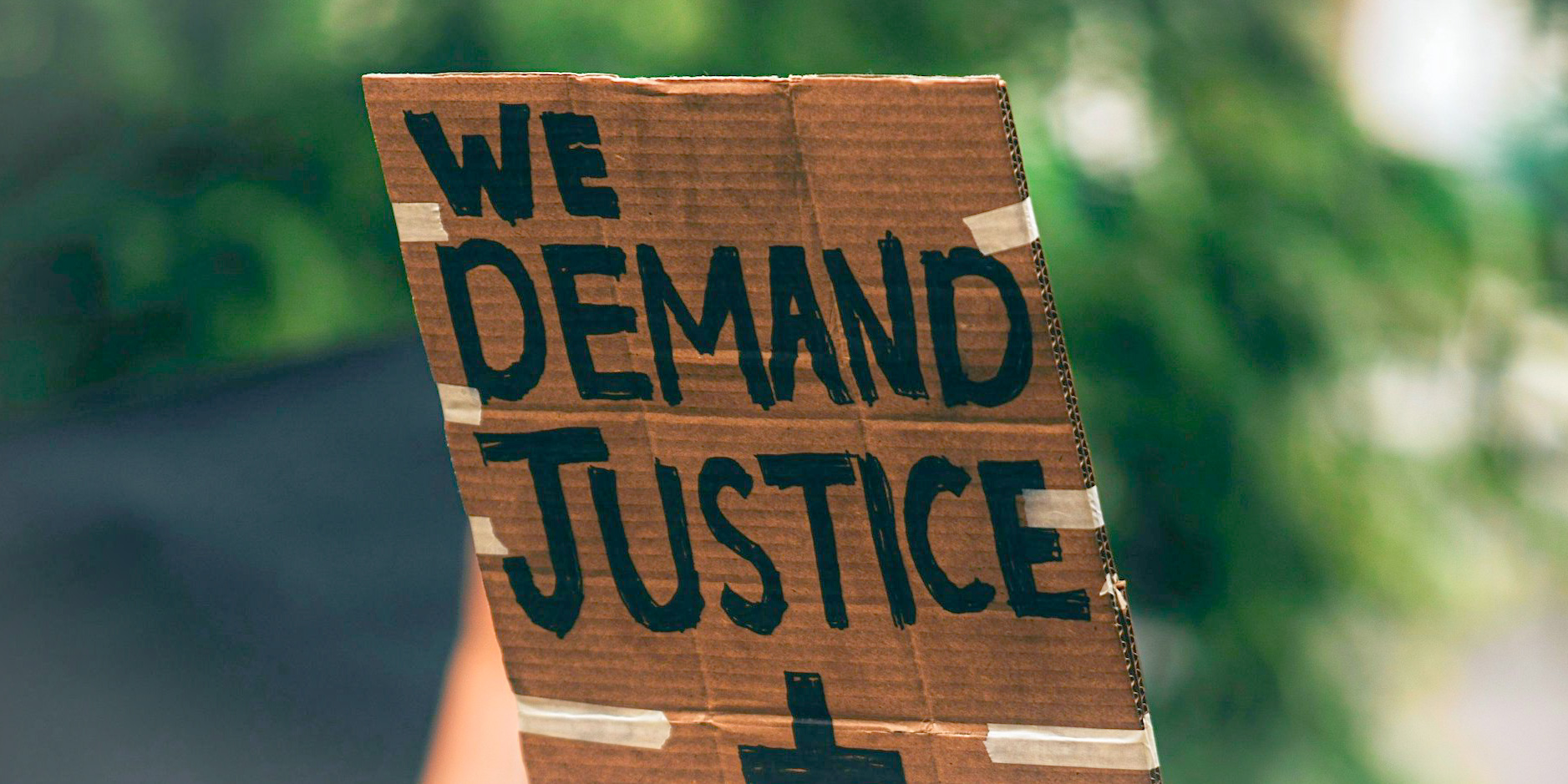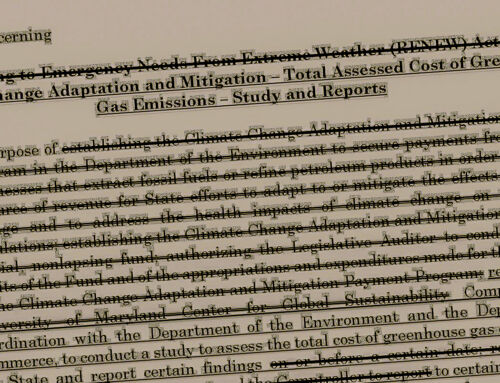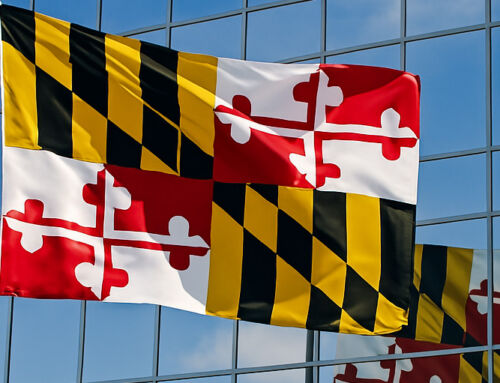View by Topic
Recent Articles
-
New Environmental Laws from the 2025 Maryland Legislative SessionSaturday, April 26th, 2025
-
Migratory Bird Treaty Act Does Not Prohibit Incidental Take – AgainSaturday, April 19th, 2025
-
President Trump’s Bold Step to Rein in State Overreach in Climate ChangeSaturday, April 12th, 2025
-
Mandatory GHG Disclosures in Maryland Real Estate ContractsSaturday, April 5th, 2025
View by Month/Year
“Green Building Law Update” Headlines
Recent Articles & News from
Stuart Kaplow’s blog
at GreenBuildingLawUpdate.com
- BEPS Redux: The Most Far Reaching Environmental Legislation of the 2025 Maryland General Assembly May 4, 2025
- New Environmental Laws from the 2025 Maryland General Assembly Session April 27, 2025
- Migratory Bird Treaty Act Does Not Prohibit Incidental Take – Again April 20, 2025
- President Trump’s Bold Step to Rein in State Overreach in Climate Change April 13, 2025
Subscribe to the Green Building Law Update!
Stuart Kaplow brings his expertise and extensive experience to the table with his unique digital publication, "Green Building Law Update". Subscribers receive regular updates to keep them informed about important issues surrounding Environmental Law, Green Building & Real Estate Law, as well as the emerging demand for Environmental Social Governance (ESG).
Get fresh content through the lense of Stuart Kaplow's cutting-edge expertise, innovative commentary and insider perspective. Don't miss another issue! Subscribe below.

Balancing Environmental Justice: A Landmark Ruling in Louisiana
Last Thursday, the Federal Court in Lake Charles, Louisiana, issued a judgment that may have far reaching implications for environmental justice across the United States.
The court granted the State of Louisiana permanent relief, enjoining the U.S. Environmental Protection Agency and the Department of Justice from imposing or enforcing any disparate impact based requirements against the state or any state agency under Title VI of the Civil Rights Act of 1964. While the ruling technically applies only to Louisiana, its significance is likely to resonate nationwide, especially because environmental justice has gained prominence as a key social movement.
The Background of the Case
The case centers around the EPA’s enforcement of regulations tied to Title VI of the Civil Rights Act, which prohibits recipients of federal financial assistance from administering programs that result in discrimination based on race, color, or national origin. The EPA and DOJ have long had regulations on the books that prohibit not just overt discrimination but also practices that have a disparate impact, unintended discriminatory effects, on protected groups. However, it is suggested that the EPA has rarely, if ever, taken enforcement actions based on these regulations because their enforceability is dubious.
Congress did not have environmental justice in mind when it enacted the Civil Rights Act in 1964. The EPA was not even created until 1970, which suggests this entire significant regulatory scheme exists on slippery ground.
For decades, Louisiana state agencies have certified their compliance with these disparate impact regulations. However, in 2015, several environmental groups in Louisiana sued the EPA for its failure to enforce these rules, arguing that the lack of enforcement allowed environmentally hazardous activities to disproportionately harm communities of color. In response, the EPA began to take the matter more seriously, proposing a consent order to resolve the issue.
Louisiana, however, saw this as an overreach. The state argued that the EPA was essentially using Title VI as a tool to impose its vision of environmental justice, which the state claimed would require them to engage in racial discrimination to avoid disparate impacts (.. reverse discrimination). Louisiana rejected a proposed consent order and initiated legal action to block the EPA’s enforcement efforts.
The Court’s Decision
In January 2024, the court issued a preliminary injunction in favor of Louisiana, preventing the EPA from enforcing its disparate impact regulations while the case was pending. Last Thursday’s judgment made that injunction permanent, effectively barring the EPA and DOJ from applying these requirements to Louisiana.
The court’s decision underscores a fundamental tension in environmental justice policy: the balance between preventing discrimination and ensuring that efforts to protect vulnerable communities do not themselves result in discriminatory practices. Louisiana argued that the EPA’s approach would force state agencies to make decisions based on race, potentially violating the very civil rights laws the agency was trying to enforce.
Implications for Environmental Justice
This ruling is particularly significant because it comes at a time when environmental justice is a growing priority for policymakers, activists, and communities across the country. The EPA, under the current Administration, has been ramping up efforts to address environmental disparities, recognizing that low-income communities and communities of color are often disproportionately affected by pollution and other environmental hazards.
The court’s ruling in favor of Louisiana raises questions about the limits of federal agency authority in enforcing environmental justice policies that are beyond express statutory authority. If other states follow Louisiana’s lead, the EPA could face significant challenges in implementing its environmental justice agenda, particularly in states that are resistant to federal intervention.
The Bigger Picture
This case highlights the complex legal and ethical issues at the intersection of environmental protection and civil rights. While the EPA’s mission to ensure that all Americans enjoy equal protection under environmental laws is of course laudable, the methods used to achieve that goal must be carefully balanced to avoid unintended consequences; and, this includes state environmental agencies with similar missions.
As the nation grapples with how best to achieve environmental justice, this ruling serves as a reminder that the path forward is not always straightforward. Balancing the need to protect vulnerable communities with the principles of fairness and non discrimination will require thoughtful, nuanced approaches. The Louisiana case is quite likely the turning point in this ongoing debate, setting the stage for future legal battles and policy decisions.
In the meantime, the EPA’s new Title VI guidance, issued just days before the court’s decision, makes clear that under the current Administration, the agency is not backing down from its commitment to environmental justice (and even expanding it to include limited English language proficiency, disability, and age). A change of the political party in the White House would upset the apple cart. If not how the EPA navigates the legal landscape in the wake of this ruling will be closely watched by all stakeholders in the environmental space.









